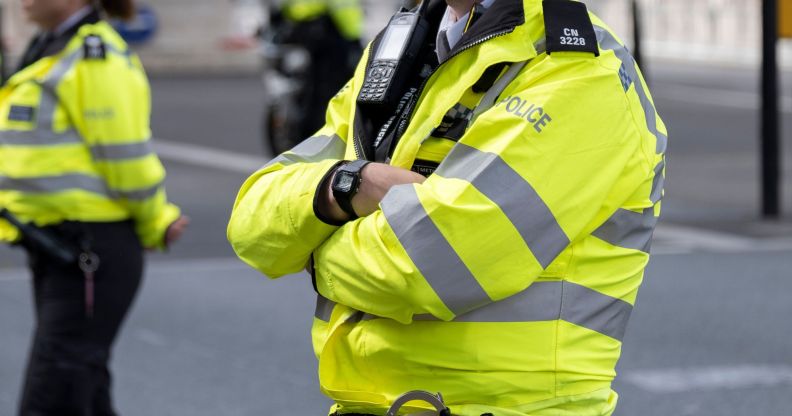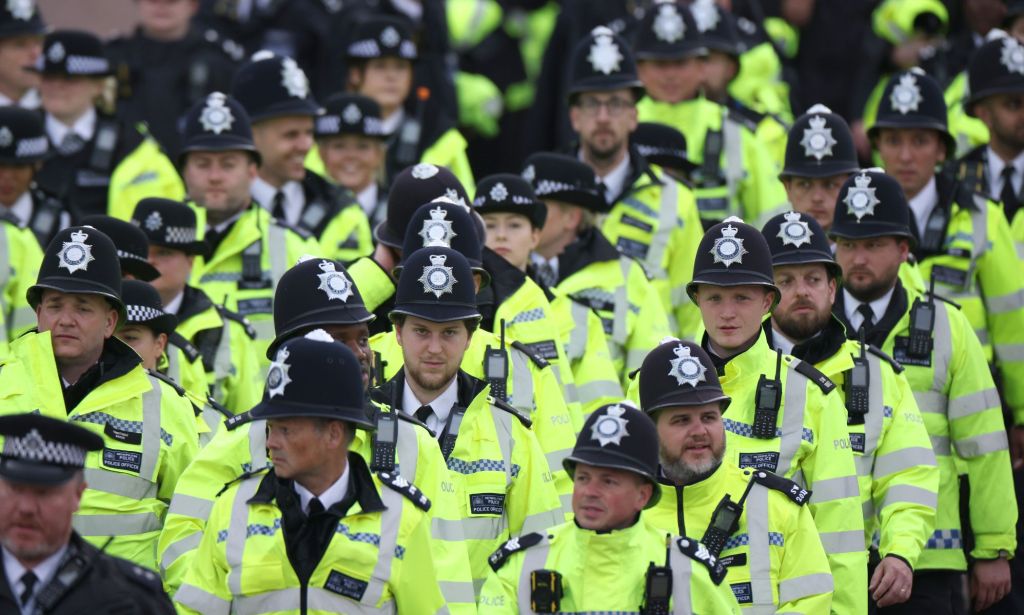Met Police officer sacked over homophobic comments and ‘psychological harm’ of female colleagues

Two men have been spared jail after beating a man and subjecting him to homophobic abuse in gay nightclub bathroom. (Getty)
Two men have been spared jail after beating a man and subjecting him to homophobic abuse in gay nightclub bathroom. (Getty)
A Metropolitan Police officer has been dismissed without notice after a misconduct review heard he harassed female staff and made homophobic remarks.
Detective Sergeant Kamran Yaqub, part of the Met’s unit in Charing Cross, was found guilty of gross misconduct over “unwanted, unwarranted and unnecessary” behaviour and/or “conduct of a sexual nature” towards four female colleagues between February 2020 and March 2021.
It was also alleged that the officer made homophobic remarks about a gay prisoner sometime between April 2020 and early 2021.
Yaqud denied the accusations, alleging the claims were made against him because of his ethnicity.
A Met misconduct panel heard that Yaqub “patted” a female colleague on the forearm, “making her feel uncomfortable”, and “sitting too close and in the personal space of others”.
One officer, known as LM, said Yaqub “appeared uninvited at her desk and stood very close facing her” just a few days after she first met her colleague. She was concerned by the proximity because she “considered his conduct weird” and also didn’t want to contract COVID-19 because “her husband was poorly”.
LM said she gave her mobile number to Yaqub to join a WhatsApp group after he “offered to help with LM’s preparation for the sergeants’ examinations”.
But LM said she started to get unsolicited, direct messages from Yacub asking if she was married and that he said something to the effect that he didn’t want to “steal” her.
The panel also found Yaqub committed conduct that was “unwanted” and “of a sexual nature” because the officer made additional comments about LM’s marriage and weight loss. It said his “conduct was harassing” and created an “intimidating and offensive environment for LM”.
In the “autumn of 2020”, a female Met officer, known as FC, said Yacub asked “who is dealing with the gaylord”, referring to a gay prisoner who was awaiting allocation.
FC challenged Yacub about the homophobic incident, which was witnessed by others at the Met, and they collectively explained why the officer shouldn’t use the slur.
Yacub denied making the statement, arguing he “didn’t even know what the word ‘gaylord’ meant”.
But the panel found he was “solely responsible” for the “proven homophobic incident” even if he “didn’t fully appreciate” the term was a homophobic slur.

The panel also heard that Yaqub made unwanted comments towards another female officer, known in the misconduct hearing documents as X.
Officer X said Yaqub told her to “just bring yourself and your beautiful smile, nothing else” when he arranged for her to get a COVID-19 vaccine. She also said Yaqub sent her messages with comments like “I really like you”, “You were the sunshine last night” and “You enjoy ur rest day and walk”.
Yaqub claimed his messages to colleagues were misunderstood and that this was just his “style” of interacting with co-workers.
But the panel ruled his behaviour was “unwanted, unwarranted and unnecessary”.
“Actual harm has been caused to the four female complainants who have talked about the psychological impact on their personal and professional lives by reason of the officer’s conduct,” the panel said.
“Collectively, the complainants have talked about feeling distress, questioning themselves, discomfort, fear and changing their work pattern to avoid going to Charing X [Cross] so they would not bump into the officer.”
It also said Officer X had been “receiving welfare support after more than two years” because of Yaqub’s “unwanted harassing behaviour”.
Met Police officers repeatedly accused of misogynistic and anti-LGBTQ+ behaviour
In March, a damning report by government official Baroness Louise Casey said the Met was guilty of institutional racism, misogyny and homophobia.
Casey condemned the London police department’s “boys’ club” culture for leading to widespread discrimination and abhorrent harassment, which are too “often ignored”.
Anti-LGBTQ+ abuse charity Galop told PinkNews that the report failed to call out the Met’s “institutional transphobia”.
Leni Morris, the chief executive of Galop, said it was “incredibly disappointing” the report didn’t acknowledge how the Met treated trans people on top of calling out its homophobic behaviour.
Morris said it added to the “failures of the Met in understanding, acknowledging and protecting our community in London”.

